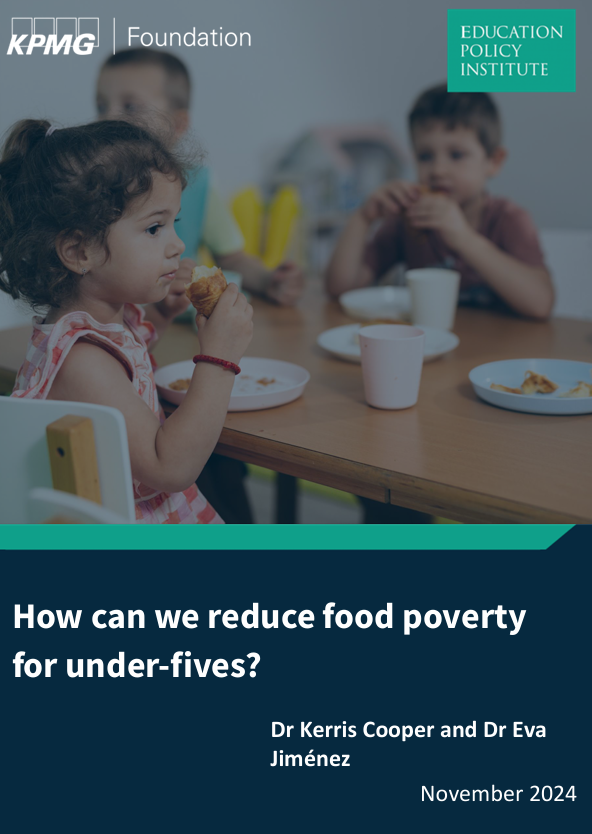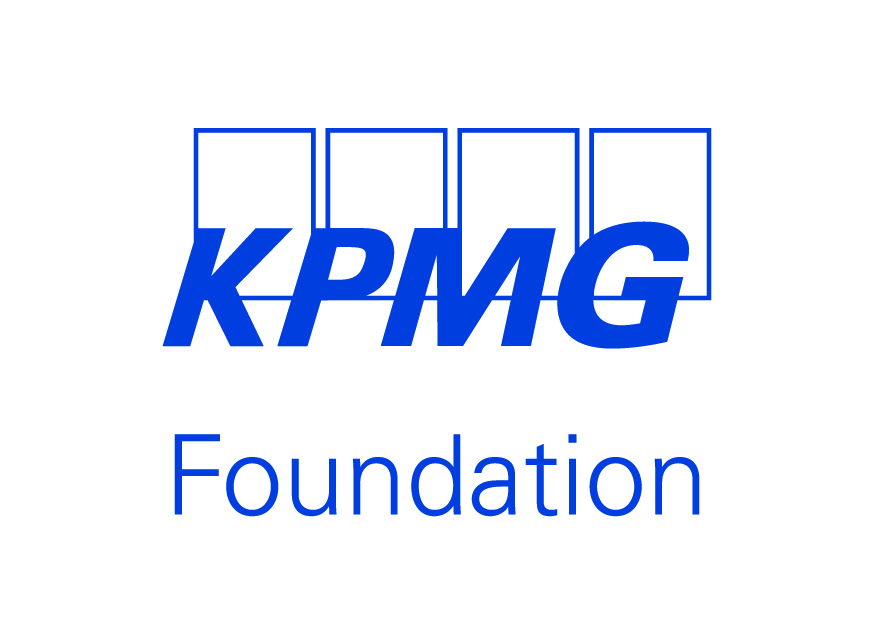A new report by the Education Policy Institute, funded by the KPMG Foundation, investigates food poverty in the early years. The research interrogates the effectiveness of national policies already in place, as well exploring what can be learnt from local place-based initiatives and from what other countries are doing.
The report finds that:
- Food poverty rates are higher for families with children under five, compared to families with older children. The Food Foundation’s latest estimate for children of different ages shows that almost a quarter (24%) of households with children under four years were experiencing food poverty in January 2024 – compared to 19% of households with older children.
- Food poverty is particularly damaging in the early years. The first five years of a child’s life are a significant period of development and are also important for outcomes in later life. Food poverty experienced by under-fives is associated with worse physical health – including obesity and tooth decay – as well as worse mental health and behavioural outcomes. Food poverty is detrimental to education – it is associated with worse cognitive development, maths and vocabulary skills.
- Food poverty is a problem of income poverty. The cost of living has increased steeply over the last few years, affecting food prices in particular, which has impacted low-income households more. Real wages have stagnated and changes to social security benefits have seen the levels of benefit payments decline. Universal Credit payments are not adequate to afford essentials including healthy food, and the Two Child Limit and benefit cap have reduced incomes for families with children.
- The Healthy Start Scheme does not do enough to support children experiencing food poverty. Evidence shows this scheme has the potential to make a positive difference in young children’s access to healthy food, but the payment amounts have not kept pace with inflation which undermines this goal. The restrictive criteria also potentially excludes many children experiencing food poverty.
- There is unequal access to free meals in early years settings. Currently only children who attend maintained nurseries and school-based nurseries are eligible for free meals if they meet the income and benefits-based eligibility criteria and the child attends before and after lunch. The majority of children attend other types of early years settings which are not required to provide free meals for low-income children. Even in the settings where free meals should be available, there is a lack of awareness of the policy, and the restrictions can make it inaccessible in practice.
The report recommends that:
- The Government is due to publish a child poverty strategy in Spring 2025 which should include a focus on food poverty experienced by families with children under five. Abolishing the Two Child Limit and the benefit cap as well as introducing an Essentials Guarantee, as advocated for by the Joseph Rowntree Foundation and Trussell, would ensure that families on social security benefits have sufficient income to meet all basic needs.
- The government should consider increasing the value of the Healthy Start Scheme and review it after every six months to ensure it keeps pace with inflation. They should also expand eligibility and improve the uptake of the scheme, ideally moving towards an autoenrollment system.
- The government should work towards universal free meals in early years settings whilst supporting the sector to be able to implement this. They should improve the existing free early years meals (FEYM) programme, promoting awareness amongst parents and early years professionals, removing restrictive criteria and increasing the scope beyond maintained settings.
- The Government should further support local authorities to provide tailored solutions to food poverty based on local needs. We recommend that central government provides regular and sustainable funding for all English local authorities to set up their own Food Poverty Alliances and Food Poverty Plans, including the views of those affected by food poverty.
You can download and read the full report here:

Note: This report was updated on 29th November 2024 to correct an error in Figure 5. The rest of the report including the text and interpretation is unchanged.
This report is kindly funded by the KPMG Foundation.

The KPMG Foundation is an independent grant-making charity, supported by KPMG in the UK. It works with others to improve the lives of children and young people in the most vulnerable families and communities of the UK, so they are safe, healthy, happy, learning and engaged.KPMG Foundation UK | Improving the lives of children
